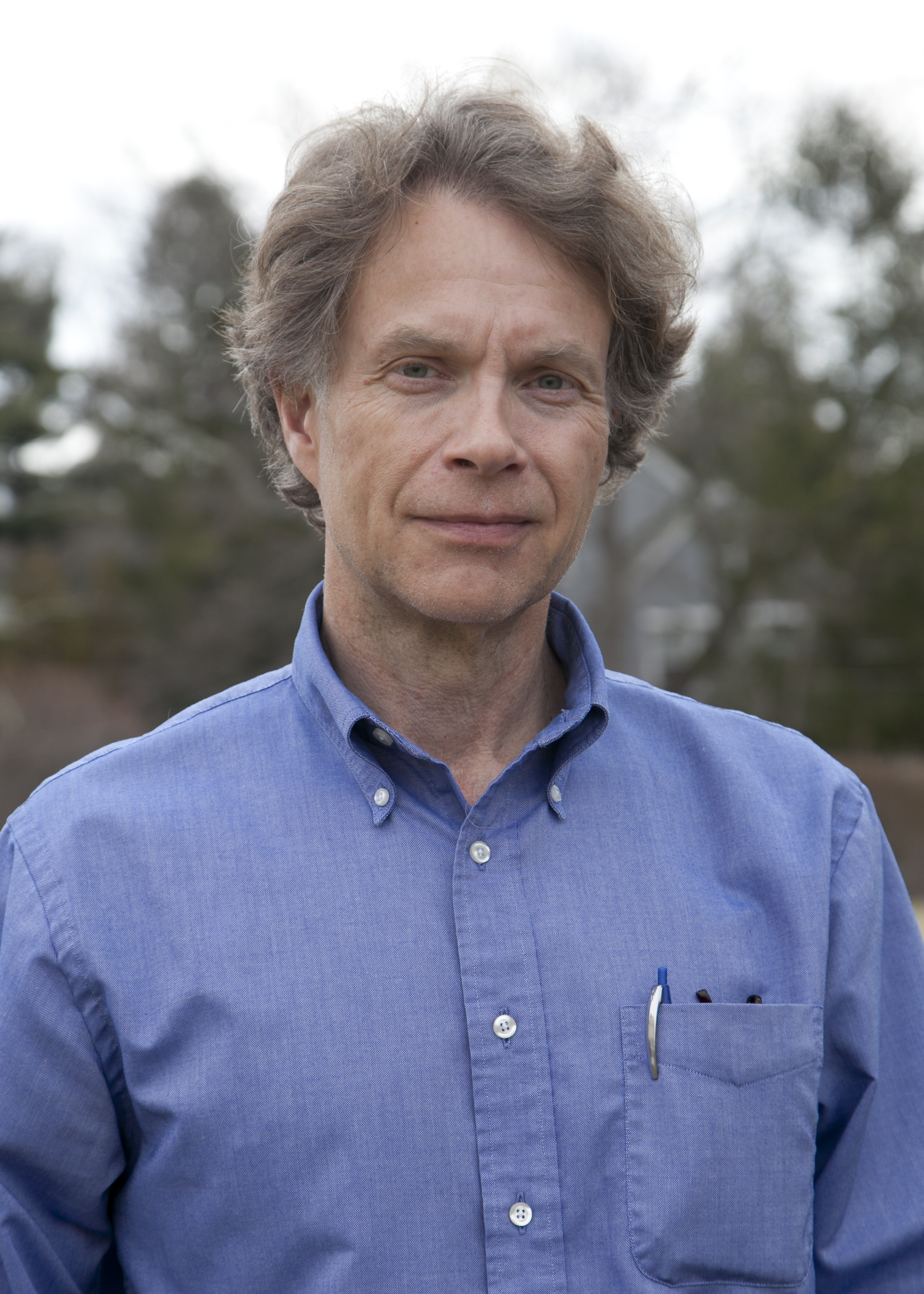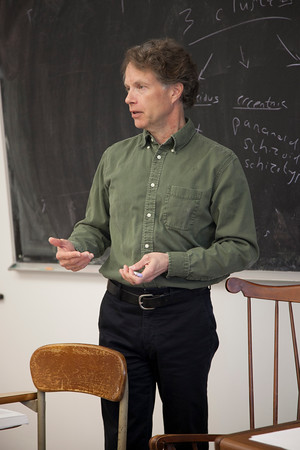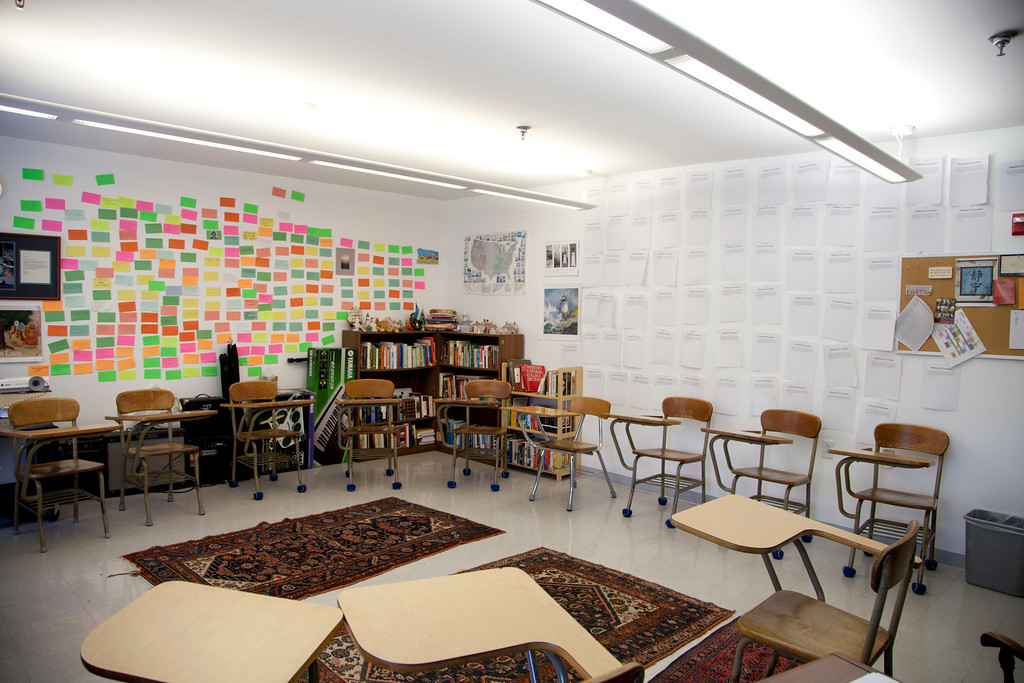 School name: Lincoln School
School name: Lincoln School
Type of school: We’re Pre-K through 12; I teach in the upper school. Lincoln is the only all-girls’ Quaker school in the country, and one of only a handful in the world. Our mission is all about enabling women to become leaders who practice such values as equality, simplicity, and non-violence.
School locale: Providence, Rhode Island.
Classes you teach: Intro to Psychology, AP English.
What’s the best advice about teaching you’ve ever received?
Regarding the teaching of Psychology (specifically when covering sleep and dreams): don’t let students talk about their dreams. I’m not quite that strict, since this is often the topic that gets kids to sign up for class to begin with, but I’ve learned the hard way that you really do have to keep it under control. Regarding teaching in general: not advice I got but advice I witnessed. I once saw Leonard Bernstein giving a master class in conducting. It was immediately clear—from his smile, his voice, his energy, his direct engagement with the workshop participants—that he was holding nothing back. Here was a guy who thought of himself as a composer and conductor, and yet when he was teaching he was 100% there in the moment and present to his students.
What book or article has shaped your work as a psychology teacher?
To Know as We Are Known by Parker Palmer is my all-time favorite, for its model of the truth-centered classroom. More recently, How We Learn by Benedict Carey; fascinating and immediately applicable to test design, lesson plans, and writing prompts.
 Tell us about your favorite lecture topic or course to teach.
Tell us about your favorite lecture topic or course to teach.
I love classes that focus around the “Don’t believe everything you think” axiom. These tend to be topics in cognition (especially automatic negative thoughts and blocks to problem solving), memory (especially its reconstructive aspects) and, perhaps most enjoyably, sensation and perception. Something as simple as the Muller-Lyer illusion can bring forth all sorts of realizations about the need for critical thinking and self-awareness, and also offer a chance to put psychology into the context of culture, which we can always do more of. I also enjoy using demonstrations of, say, the waterfall effect or why the moon seems bigger on the horizon. The giggle factor in these classes is usually pretty high, which makes learning fun and memorable. The ooh-ah factor is also high: students being blown away by something real and immediate, which they still talk about months later. We might even find ourselves developing a more nuanced and compassionate understanding of human fallibility. My favorite student comment to emerge from these classes: “I feel like I’ve been lied to my whole life—by my own brain!”
Describe a favorite in-class activity or assignment.
Anything that gets kids up and moving after lunch, like shouting out the structures of the limbic system while bopping around to “The Chicken Dance.” This kind of thing is a great prelude to more reflective or intellectually intensive work. Another assignment is as simple as it is effective: go out this weekend and look for examples of what we’ve been studying in class. Any number of students will come in on Monday morning who can’t wait to talk about what they found. Not only has their learning helped them understand the world a little better; they also discover that their teachers aren’t just making stuff up. I think they find this second discovery more revelatory than the first.
What teaching and learning techniques work best for you?
Group work every day; I find jigsaw groups especially effective. Also frequent low-stakes tests, including tests before learning the material. The questions tend to present real-world scenarios, so that taking the test is itself a means of advancing the learning process. Each test or quiz also contains bonus review questions that connect new learning to old.
What’s your workspace like?
I begin the school year with bare classroom walls. Each day a different student brings in a quote that she’s written on a brightly colored index card, which she reads and then puts up on the wall. Plus, each time the class does a writing assignment, I look for “Moments of Greatness”—a terrific insight, an elegantly made point, some graceful prose—which I type out on a piece of paper and read to the class. These also get posted on the wall. By the end of the year, all the walls are covered with “Moments of Greatness” sheets and inspiring quotes on cards of all colors, a physical reminder of the community we’ve created.

Three words that best describe your teaching style.
Make-'em-laugh, make-'em-cry, make-'em-think (okay, so I cheated . . .)
What is your teaching philosophy in 8 words or fewer?
Be mindful of Tao te Ching chapter 17.
Tell us about a teaching disaster (or embarrassment) you’ve had.
I was a literature professor back when dinosaurs roamed the earth. One day, we were having a great discussion of The Adventures of Huckleberry Finn. I wanted to ask the class, “At this point, how does Huck feel?” But I got the first letters of “Huck” and “feel” mixed up. Fortunately, these were college students and thus way too mature to find this amusing (they only laughed for twenty minutes).
What is something your students would be surprised to learn about you?
I didn't set out to become a teacher. When I was a young man, I was a professional musician. When I was a little boy I wanted to be an astronaut. Preferably the first person on Mars. Neil Armstrong had beaten me to the moon, alas, but I had a speech all prepared that would have put his “One small step” thing to shame. I wish I could remember it now. Or maybe not.
What are you currently reading for pleasure?
Backpacking With the Saints by Belden Lane, an exploration of wilderness walking and inner experience. And Natchez Burning by Greg Iles, an epic murder mystery about the legacy of the civil rights era and the secrets between fathers and sons.
What tech tool could you not live without?
Um . . . fire, I guess.
What’s your hallway chatter like? What do you talk to colleagues about most (whether or not it is related to teaching/school)?
Most of my colleagues got to Lincoln School by a scenic route: some had other careers first, some have terminal degrees, some are fresh from a really interesting undergraduate program. But everyone has a great story to tell and everyone is really dedicated to the school. So, while there’s the usual grumbling about the grumbling that students do, there’s a whole lot more talk about how one kid or another has finally experienced that major breakthrough she’s been working toward. It’s inspiring to see how well my colleagues know their subjects and how much they care about their students.
